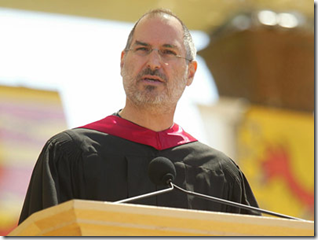Perhaps a near-death experience is a good thing. At least one therapist seems to think so.
/A mental health therapist recently said this in a comment to a post on the blog:
"I frequently try to bring on an existential crisis in a client to help them find what is most important to them."
I thought this comment was fascinating.
I've often said that my alarmingly frequent near-brushes with death drive me (at least in part) to succeed, and that without my death by bee sting, death by car accident, and near-death by robbery, I may have never accomplished the things I have.
I've spoken about this many times, including a TEDx Talk last year:
Perhaps I needed those near-death experiences. Starting out as a kid who had to leave home at 18 and ending up in jail, homeless, and facing trial for a crime didn't commit didn't make things easy. Maybe I needed as much help as I could get, even if it came in the form of several close calls. I'm not sure if I would wish these experiences on anyone, but maybe a head-on collision with a Mercedes, an undetected allergy to a bee sting, and a violent assault and robbery were just what I needed in order to keep me focused and working hard.
I've often wondered about this. As a life coach, I've once worked with a person who knew another near-death survivor, and he said that the two of us were remarkably alike. In fact, he told me that he often wished that he would suffer a near-death experience, too, because he said that we were the two most driven people he had ever met.
I explained to him that these brushes with death came with a cost, including a lifetime of post traumatic stress disorder, but he seemed to believe that this was a small price to pay for a lifetime of productivity, tenacity, and success.
Maybe he's right.
It's impossible to determine exactly why one person succeeds in life while another does not, but I know that when I was a boy, I wanted to be a teacher and a writer, and for a long time, both of those dreams seemed impossible to me and to everyone around me. The idea that I might find my way to college, graduate, become a teacher, and publish novels was something most people would've considered a fantasy.
Today they are a reality.
Perhaps this therapist is doing something brilliant. By bringing her clients to an existential crisis, she is helping them understand how short and fragile life can be and perhaps instilling in them the same fear of lost opportunities and regret that I have.
And I suspect that she's not holding a gun to their head and pulling the trigger or sending them through a windshield in order to do so.
Up until now, the best I could do is tell my story and implore people to heed my advice:
Say Yes.
Live Life Like You Are 100 Years Old.
Complete your Homework for Life.
Maybe there's a better way. Maybe you, too, could experience the kind of existential crisis that I have, and like me, maybe it will change your life.
I'd love to know how she brings about these existential crises in her clients, and I suspect that my former life coaching student would as well.

